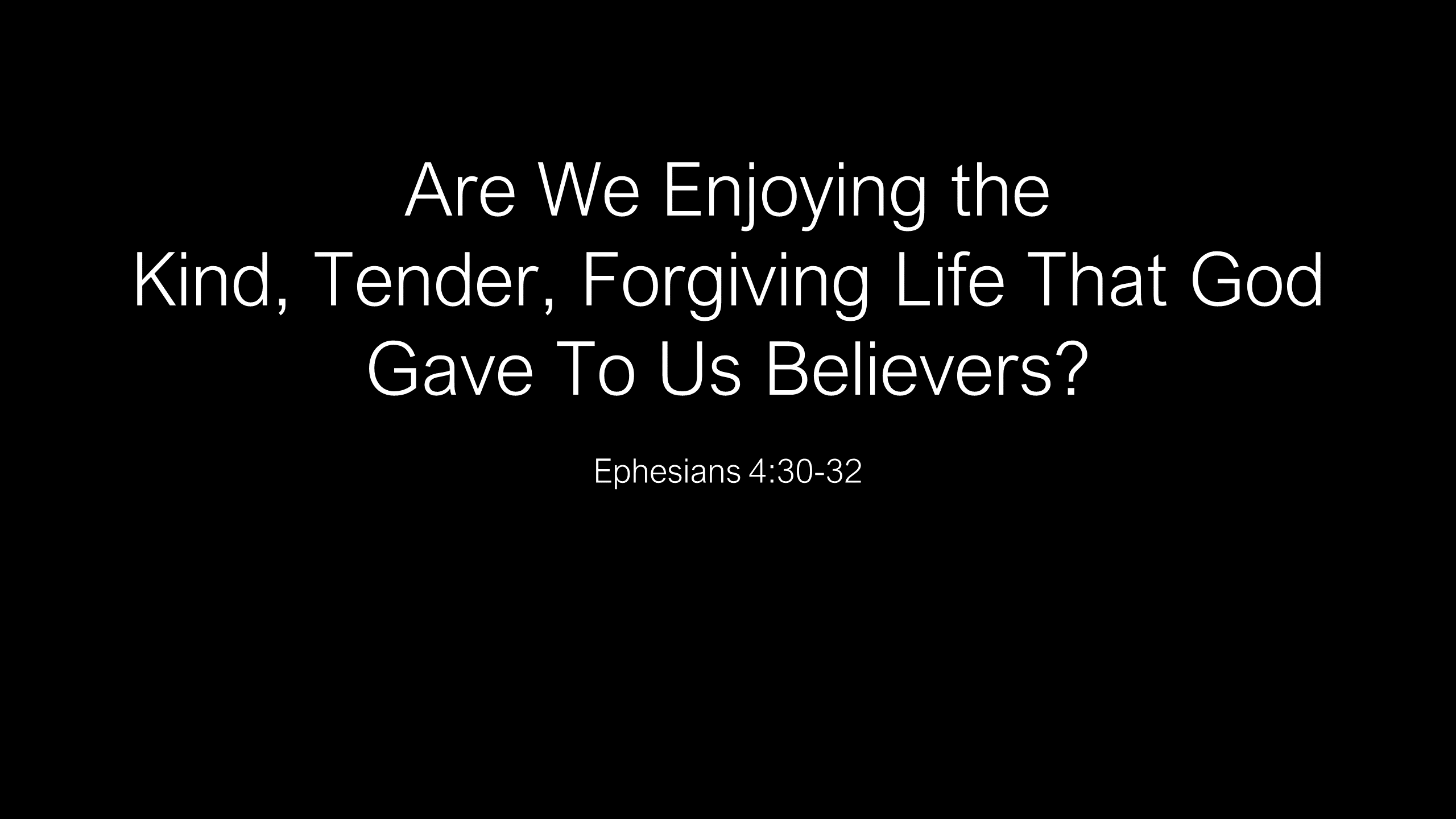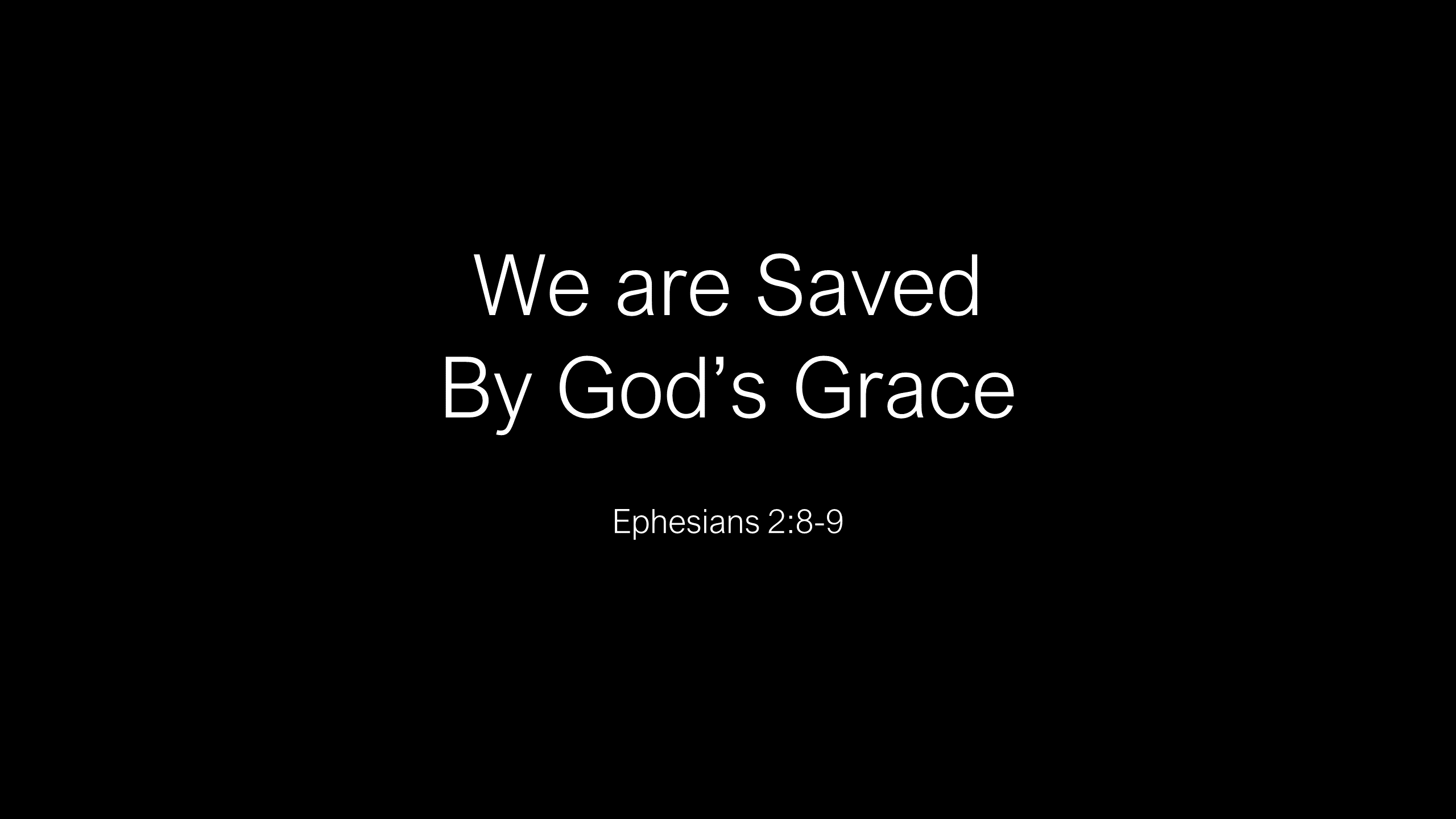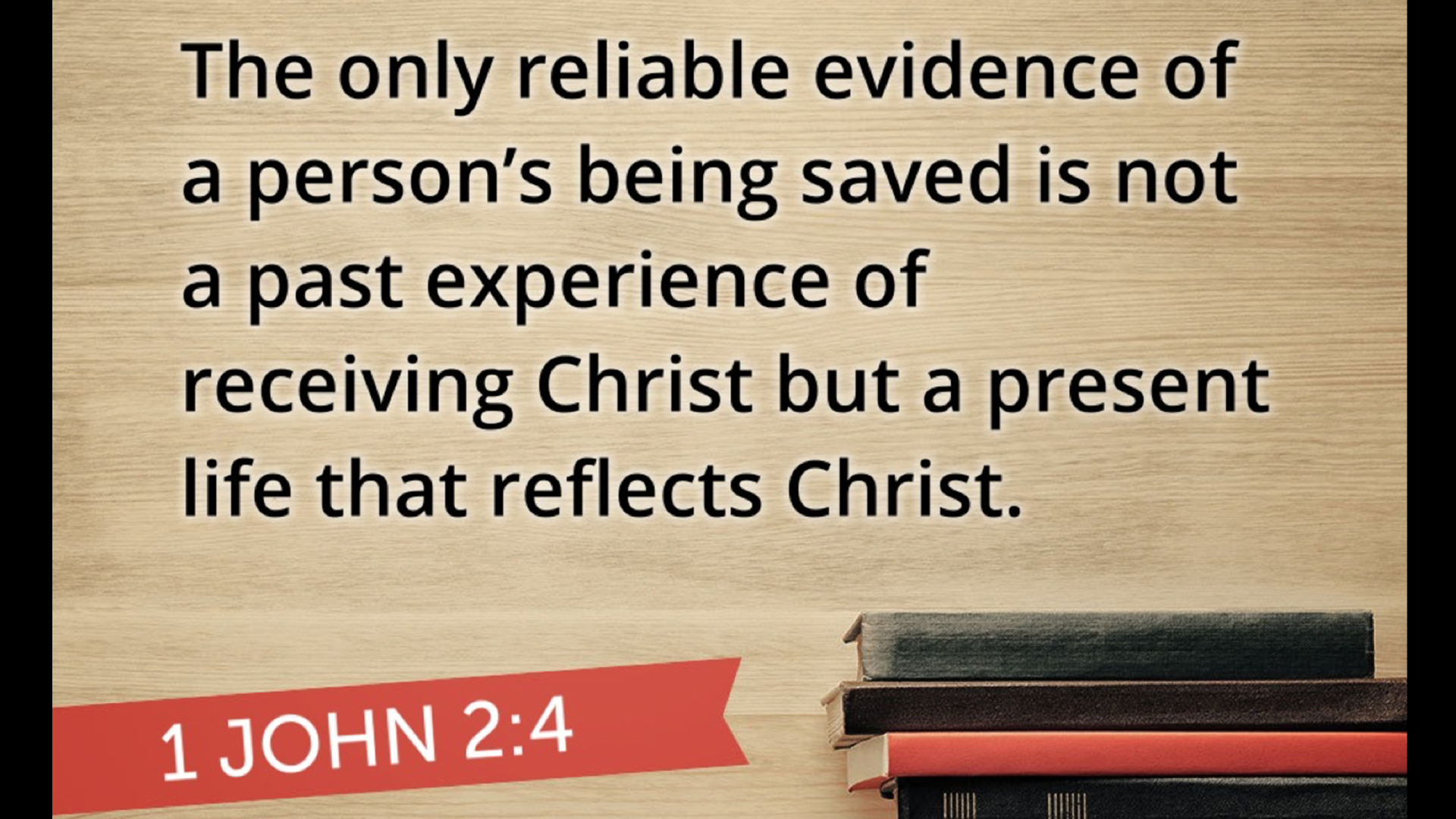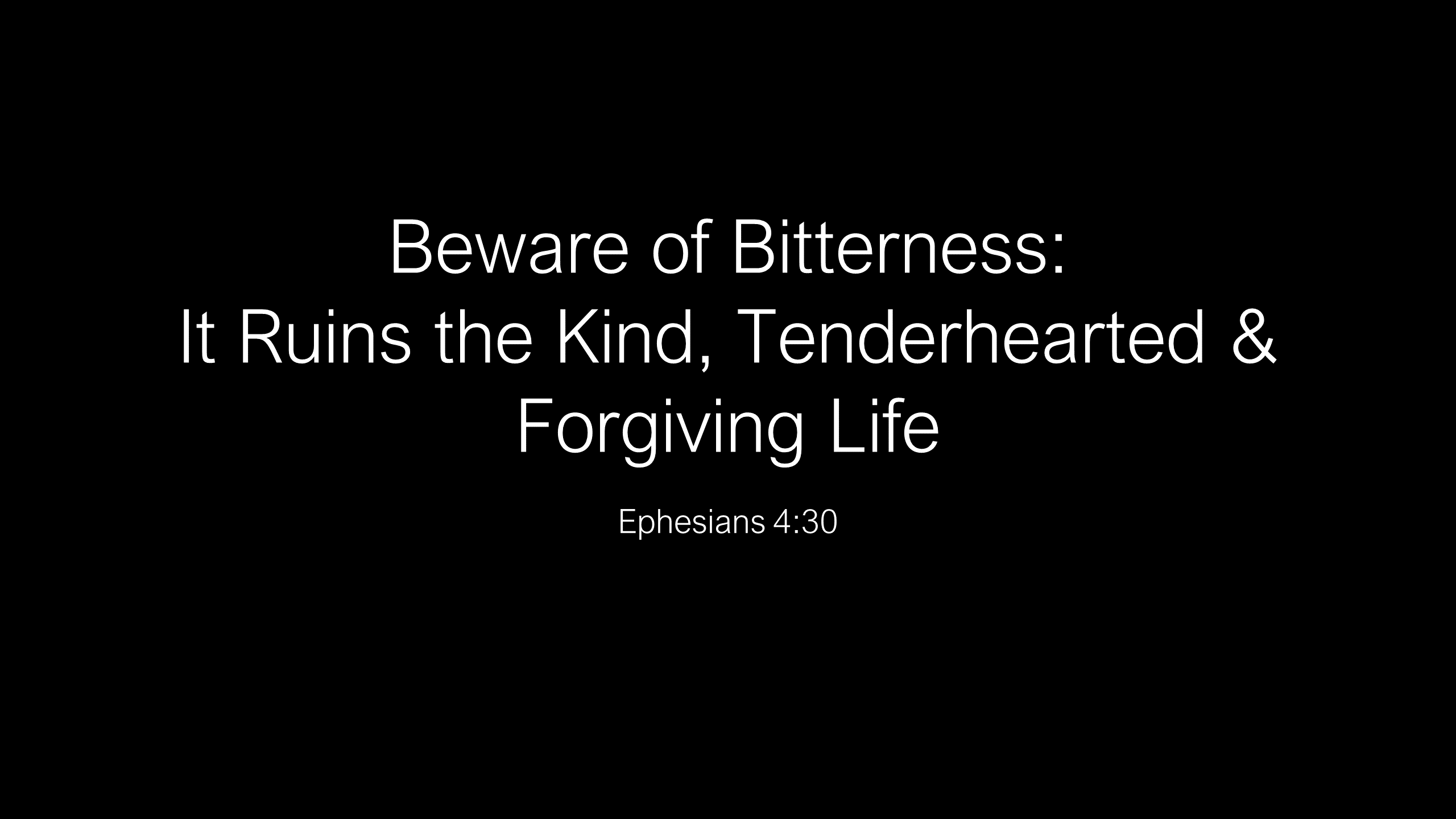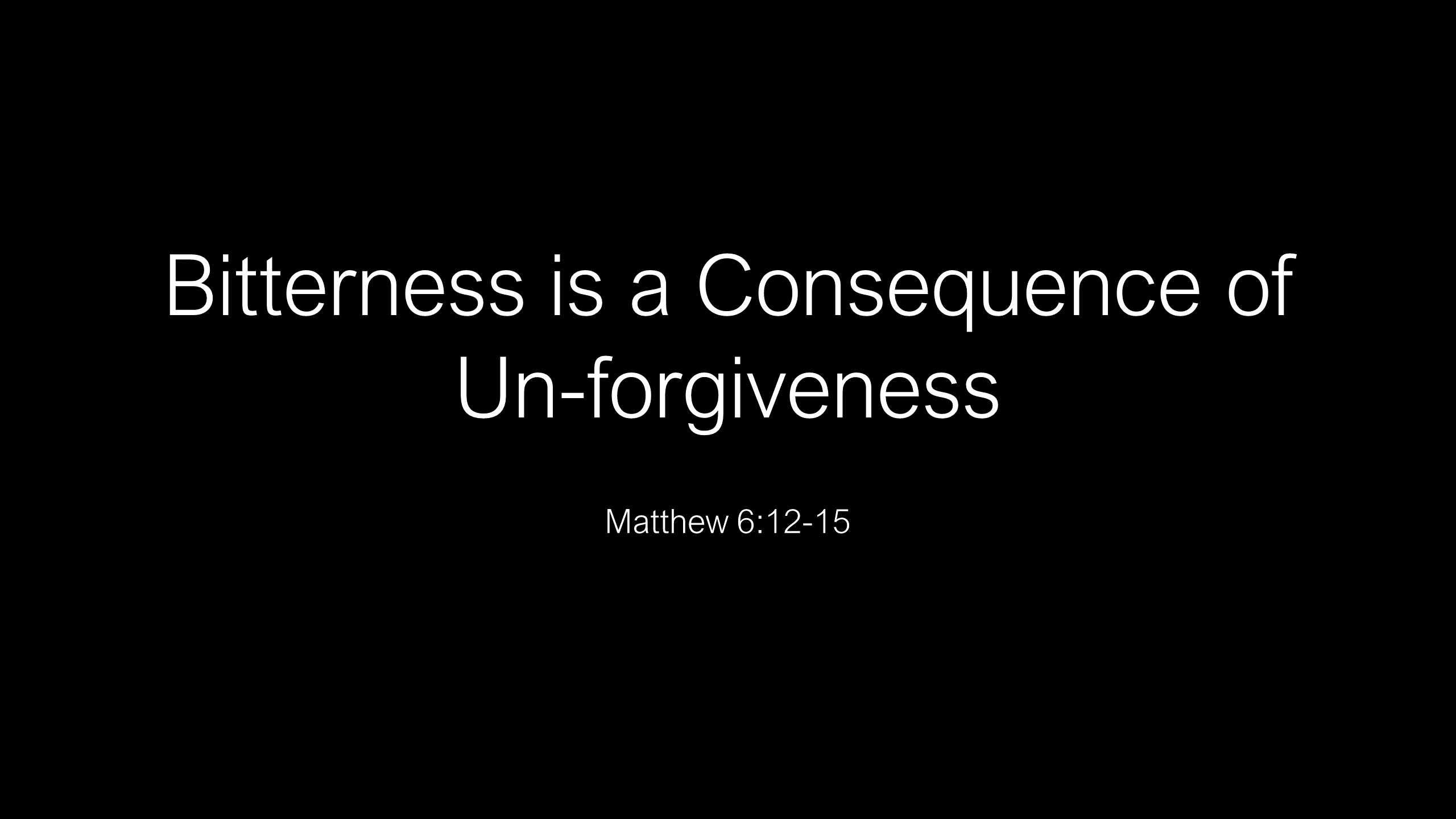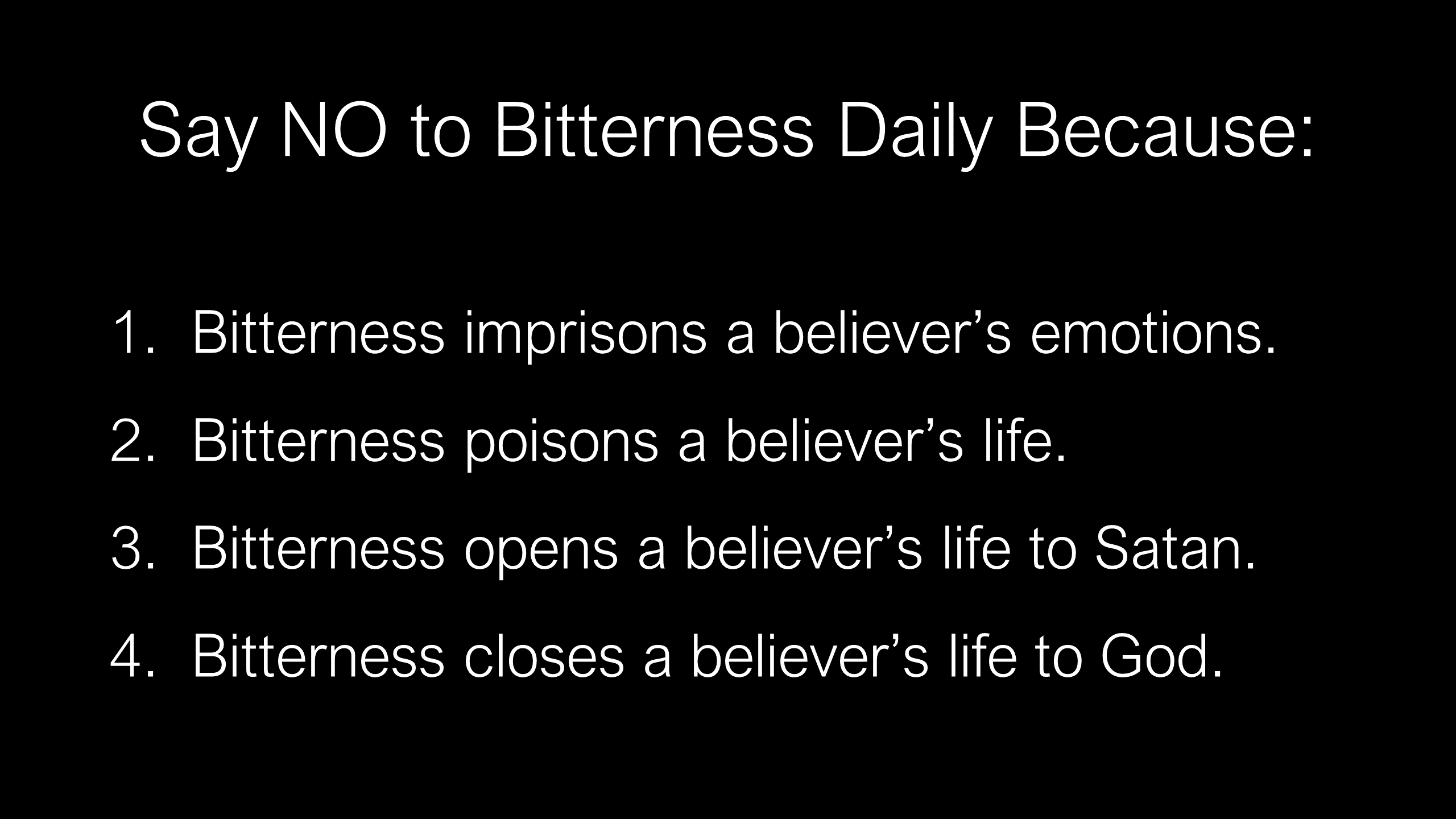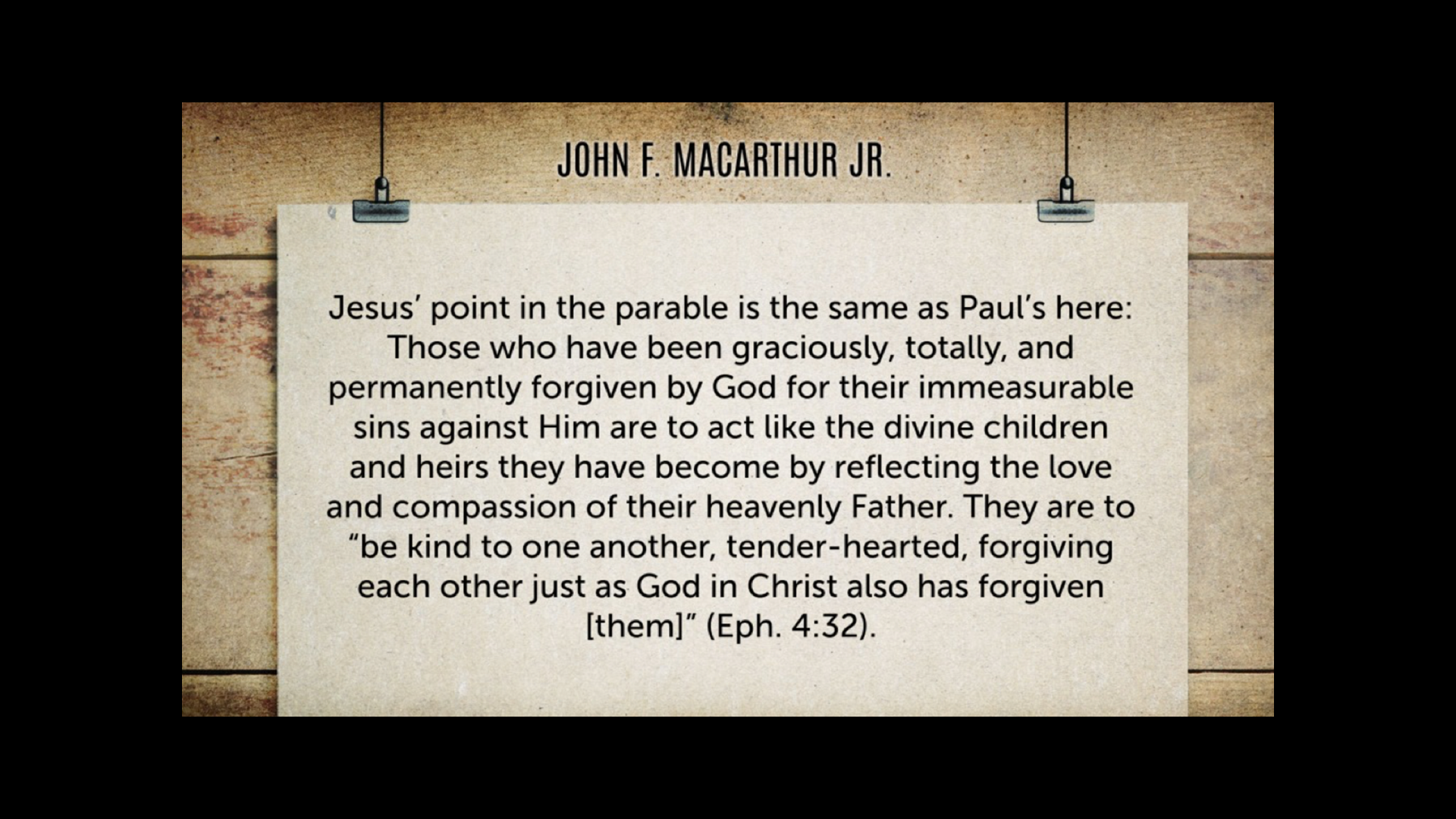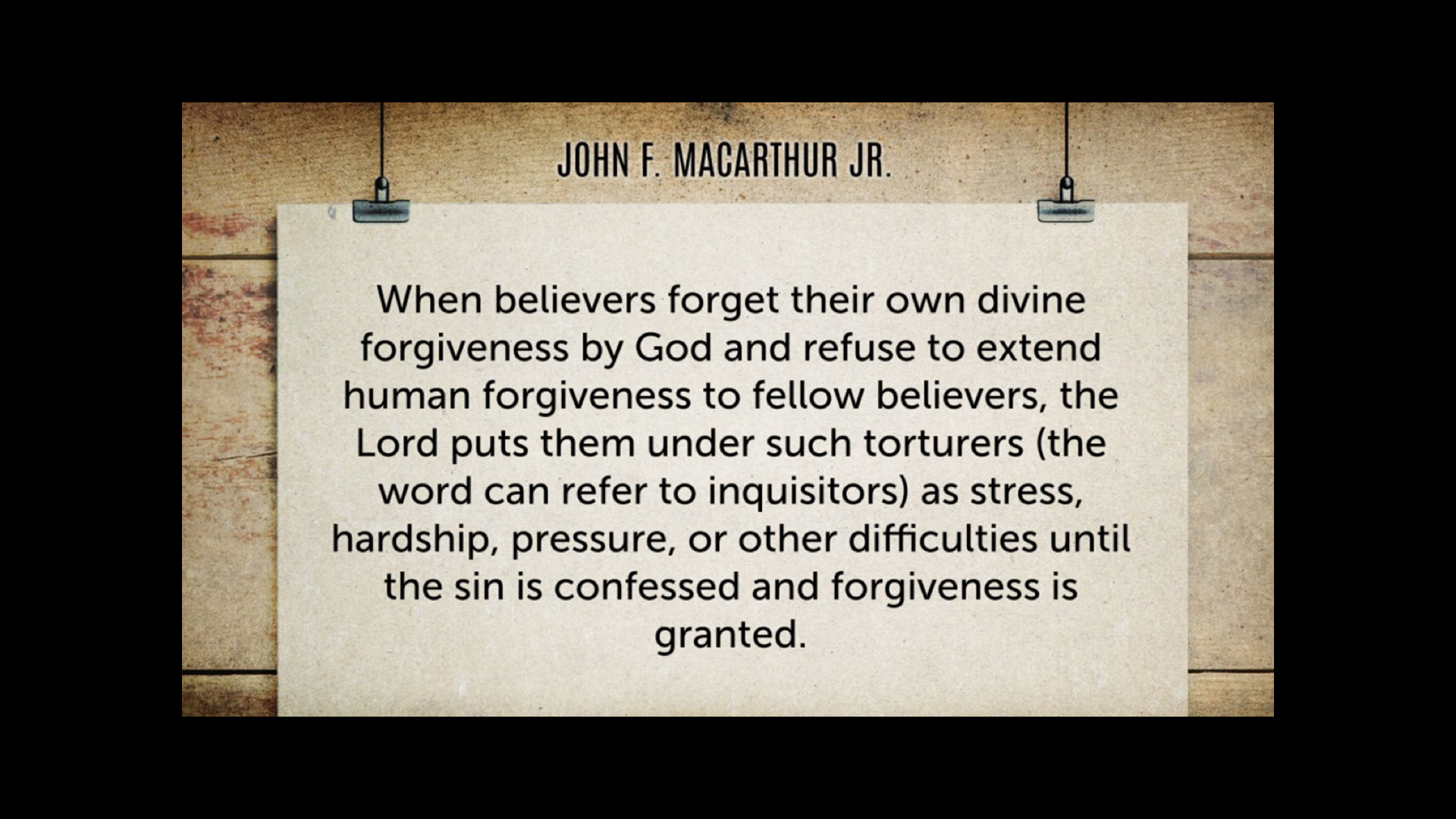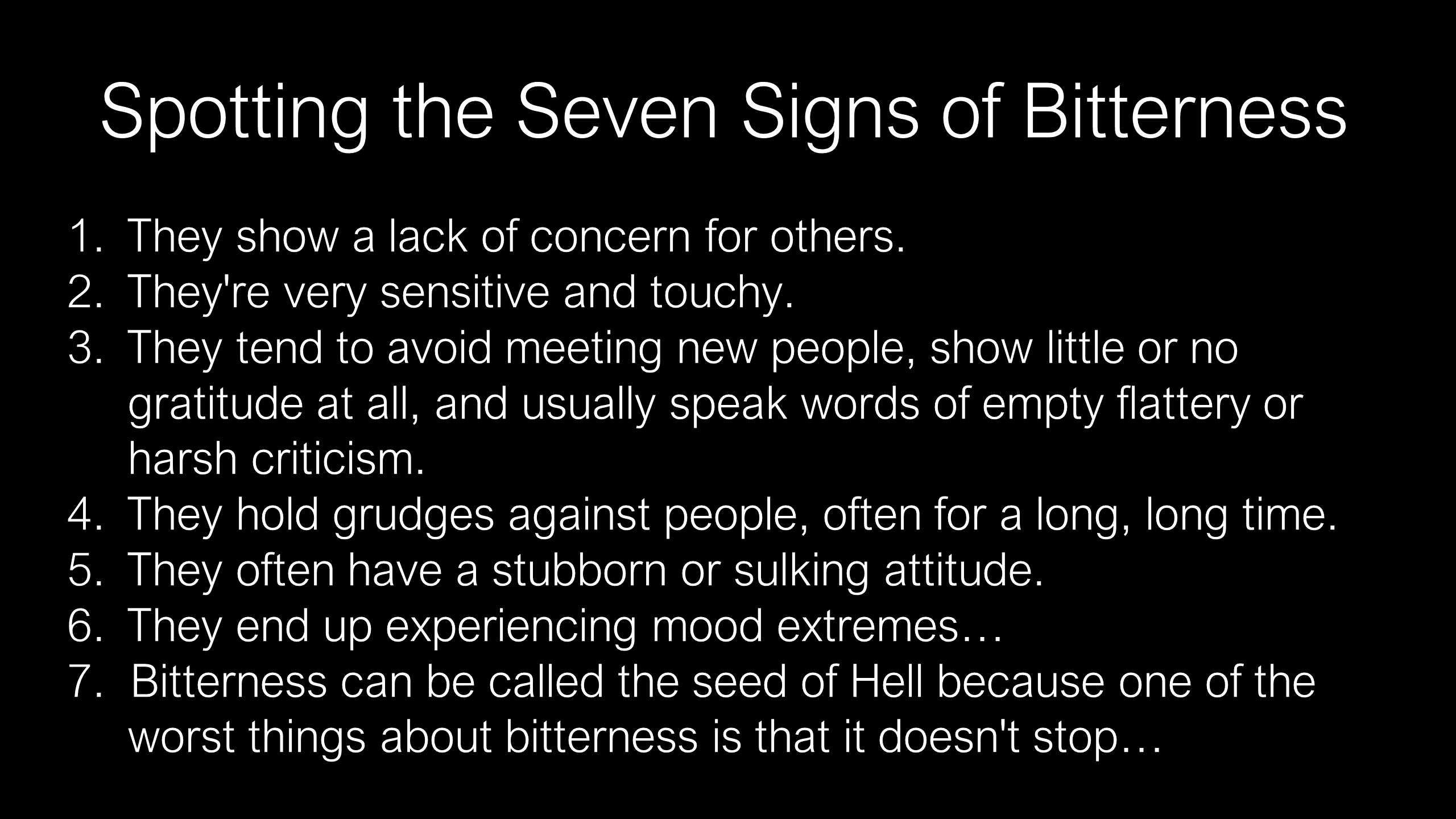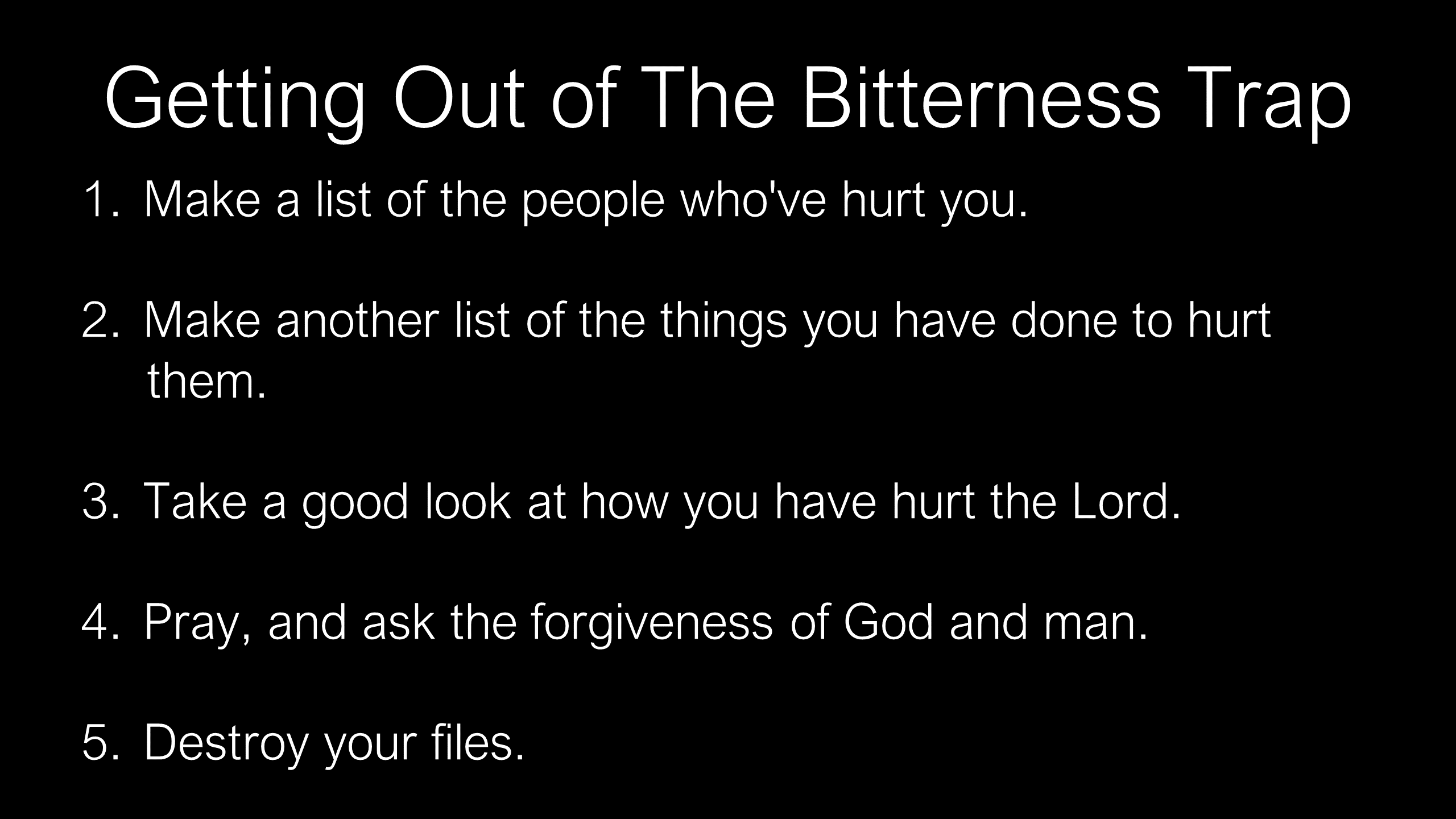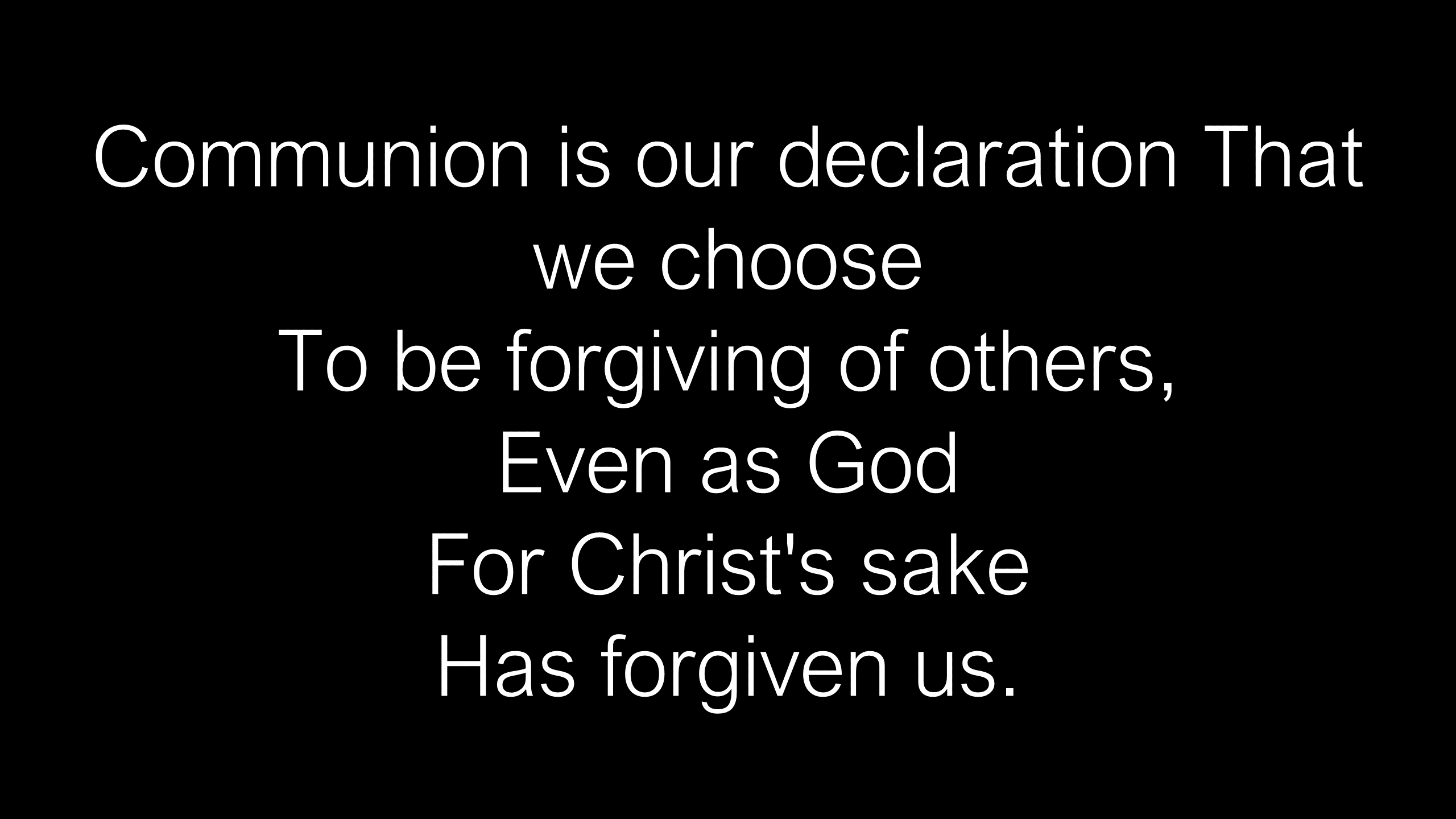If the YouTube video above is not available, here are two other ways to view:
151206AM
Forgiving
SWS-04
Are We Enjoying the Kind, Tender, Forgiving Life That God Gave To Us Believers?
Ephesians 4:30-32
Do you all remember Ephesians 2:8-9? Say it with me (NKJV):
For by grace you have been saved through faith, and that not of yourselves; it is the gift of God, 9 not of works, lest anyone should boast.
We are Saved By God’s Grace
Salvation is the most amazing work of God in the Universe. Stars are great, galaxies are amazing, atoms are intricately constructed, and DNA is a wonder of Divine engineering; but salvation is so incomprehensible that, even the angels are in wonder and desire to fully understand what God offers to us.
Salvation is an absolutely free offer of an endless journey, as a beloved family member of God Almighty. Nothing compares to God’s salvation offered in Christ. What every human ever dreamed of having as far as pure delight, absolute security, endless satisfaction, and immortality are all part of the offer plus so much more that is is beyond our comprehension.
That is God’s offer of salvation. Then comes the result of salvation, which is that we are kind, tenderhearted, and forgiving. Why are we those things? Because God for Christ’s sake has forgiven us.
Salvation is eternally permanent.
Salvation is graciously unconditional.
Salvation is fully paid for by God alone.
We are to Obey by God’s Grace
God has said that we can know whether someone is truly saved or just claims to be saved by whether or not their life is a new creation (2 Cor. 5:17). By the end of the New Testament era the last Apostle is sounding some strong warnings about counterfeit believers. Listen to 1 John 2:4 (NKJV):
He who says, “I know Him,” and does not keep His commandments, is a liar, and the truth is not in him.
Salvation comes with obligations and verifications.
The only reliable evidence of a person’s salvation is not some past experience of praying to receive Christ, but a present life that reflects Christ.
What is the sign and seal of our salvation? The Spirit of God.
What does He do in our lives? The Spirit of God produces in all true believers a kind, tenderhearted and forgiving life. In Ephesians 4 Paul explain that:
We are to Put Away Sinful Behavior by Grace
Eph. 4:30-32 (NKJV) And do not grieve the Holy Spirit of God, by whom you were sealed for the day of redemption. 31 Let all bitterness, wrath, anger, clamor, and evil speaking be put away from you, with all malice. 32 And be kind to one another, tenderhearted, forgiving one another, even as God in Christ forgave you.
Bitterness (pikria) reflects a smoldering resentment, a brooding grudge–filled attitude (see Acts 8:23; Heb. 12:15). It is the spirit of irritability that keeps a person in perpetual animosity, making him sour and venomous,
Wrath (thurmos) has to do with wild rage, the passion of the moment.
Anger (orgē) is a more internal smoldering, a subtle and deep feeling.
Clamor (kraugē) is the shout or outcry of strife and reflects the public outburst that reveals loss of control.
Slander (blasphēmia, from which we get blasphemy) is the ongoing defamation of someone that rises from a bitter heart.
Malice (kakia), the general term for evil that is the root of all vices. All of these, he says, must be put away from you.[1]
Beware of Bitterness: It Ruins the Kind, Tenderhearted & Forgiving Life
There are many infections of the soul that are caused by sin.
One of the more powerful infections is called bitterness.
Bitterness slowly infects a person’s life systemically. Every part of their life becomes defiled (Heb. 12:15), their joys get soured, their hopes get dimmed, and spiritual life gets distant.
Beware of allowing bitterness to destroy your life.
One of the struggles believers have always faced while seeking to follow the Lord is: bitterness.
The key passage in the New Testament that warns about bitterness is Ephesians 4:30.
Ephesians 4:30 And do not grieve the Holy Spirit of God, by whom you were sealed for the day of redemption. NKJV
The immeasurable power of God is stopped when His people disobey. God’s grace teaches us to deny ungodliness, but when we resist that grace our sin grieves and quenches the Holy Spirit[2].
Bitterness is a very deadly, fast-growing, and easily spread form of spiritual cancer.
In the New Testament each time the word bitterness is used it always is a form of the Greek word pic. This word means just what the tool by the similar sounding word comes from, “to prick or cut”. This Greek word used for bitterness implies something that pricks or punctures and penetrates deeply.
This verse is fascinating for two reasons:
First, bitterness is the very first sin that is listed after Paul warns about the horrible dangers of grieving the Holy Spirit of God as a believer. Bitterness is FIRST in that list, never forget that.
Second, the verse on the other side of the warning (v. 29) is all about corrupt words (one of the danger signs of a bitter person is that they say rotten things about others).
Beware also of one of the chief causes of bitterness, which is an unforgiving heart.
That is:
Bitterness is a Consequence of Un-forgiveness
Remember Matthew 6:12-15 (NKJV)?
And forgive us our debts, As we forgive our debtors. 13 And do not lead us into temptation, But deliver us from the evil one. For Yours is the kingdom and the power and the glory forever. Amen. 14 “For if you forgive men their trespasses, your heavenly Father will also forgive you.15 But if you do not forgive men their trespasses, neither will your Father forgive your trespasses.
At the heart of bitterness is a hurt that is internalized and not forgiven.
Christ’s Strongest Warning to Believers
Perhaps the strongest warning Jesus ever gave to his disciples was in Matthew 18—He warned that the results of a bitter and unforgiving heart were grave. For a moment turn there to Matthew 18:35, stand with me and listen to the gravity of Christ’s warning.
“So My heavenly Father also will do to you if each of you, from his heart, does not forgive his brother his trespasses.” NKJV
Did you catch that? Jesus just told believers that we would trap ourselves in the prison house, and find ourselves in solitary confinement, tortured by the poisonous and sharp cutting edge of bitterness–if we hold onto an unforgiving spirit that always leads to bitterness.
Bitterness Leads to Intense Inner Torment
Jesus said that we hand ourselves over to the torturers (Mat. 18:34) when we embitter our hearts against someone. Those who live in the gall of bitterness imprison themselves in an emotional concentration camp, and become the victims of immense internal torment.
Nurturing bitterness is as foolish as drinking poison, or diving into a dark pit.
Our refusals to forgive wall us into solitary confinement, and bitterness becomes our tormentor.
Jesus warns that any believer is a candid
ate for this unspeakable emotional and mental torment when bitterness-producing un-forgiveness is practiced.
Do you see now why Paul lists bitterness first in the lineup of Spirit-grievers?
Do you see why he says “put away ALL bitterness”?
He says it is so deadly, so painful, so quick to spread that it must be dealt with right away.
A bitter person is cut and punctured by the words or actions of others. Those wounds untreated by the healing grace of a tender-hearted-forgiving-attitude become a source of malignant poison. So this wound infects the wounded person with bitterness, a hurtful condition that touches every part of their life. As Hebrews 12 warns us, bitterness spreads throughout a person’s life until everything in them gets defiled by bitterness.
Hebrews 12:15 looking carefully lest anyone fall short of the grace of God; lest any root of bitterness springing up cause trouble, and by this many become defiled; NKJV
One of the dangers signs of bitterness is when hurts quickly get infected, and become resentful feelings, which almost always will grow into bitterness.
What is the solution Ephesians 4:30-32 gives to us believers?
Say NO to Bitterness Daily Because:
1. Bitterness imprisons a believer’s emotions.
Failing to forgive another will imprison a believer in their past. Bitterness nurtures pain and keeps it alive, never allowing the wound to heal. The longer the hurt is dwelt upon the more our anger is fed, resentment grows, and joy is extinguished. Forgiveness-energized by grace, opens our prison doors and sets us free from our past.
2. Bitterness poisons a believer’s life.
Bitterness is not just a sin; it is an infection that poisons our speech making it biting, cutting, sarcastic, and slanderous. Bitterness poisons our emotions making them violent, unpredictable, intolerant, vengeful, and ungodly. Bitterness poisons all relationships making them void of affection, devoid of love, and emptied of kindness. The writer of Hebrews warns, “See to it that no one comes short of the grace of God; that no root of bitterness springing up causes trouble, and by it many be defiled” (Heb. 12:15). Forgiveness-energized by grace, replaces bitterness with love, joy, peace, and the other fruits of the Spirit (cf. Gal. 5:22-23).
3. Bitterness opens a believer’s life to Satan.
When Paul warned believers about improper anger he mentioned Satan’s horrible presence in Ephesians 4:26-27, “Be angry, and yet do not sin; do not let the sun go down on your anger, and do not give the devil an opportunity.” When Paul similarly charged the Corinthians he again joins Satan’s destructive influence upon believers who leave open this strategic door as he wrote, “Whom you forgive anything, I forgive also; for indeed what I have forgiven, if I have forgiven anything, I did it for your sakes in the presence of Christ, in order that no advantage be taken of us by Satan; for we are not ignorant of his schemes” (2 Cor. 2:10-11). The Bible clearly warns that unforgiving-based-bitterness offers the most ground that Satan gains in our lives. Forgiveness-energized by grace bars that avenue of demonic attack.
4. Bitterness closes a believer’s life to God.
Remember how soberly Christ spoke in the Sermon on the Mount? “If you forgive men for their transgressions, your heavenly Father will also forgive you. But if you do not forgive men, then your Father will not forgive your transgressions” (Matt. 6:14-15). Jesus was not saying that believers lose the completed, past forgiveness of salvation. He was warning that bitterness robs them of their ongoing relational forgiveness with God the Father. We cannot be right with God when unforgiving of others. Forgiveness-energized by grace always restores us to the place of maximum blessing, returning us to purity, and the joy of fellowship with God.
God wants believers to avoid bitterness so much, that He constantly emphasizes the importance of forgiveness in Scripture. There are no less than seventy-five different word pictures about forgiveness in the Bible.[3]
Spotting the Seven Signs of Bitterness
What are the warning signs of bitterness? As I list off some of the most common signs of bitterness, ask yourself as a wife or mother (and anyone else here this morning) are you showing any of these signs of bitterness.
It is really not that complicated to recognize that bitterness has set in. Let’s think of some of the characteristics of a bitter person:
1. They show a lack of concern for others. A bitter person cares very little about anybody else.
2. They’re very sensitive and touchy. For instance, if a bitter person walks into a room where two other people are talking, and those people get quieter as he walks in, the bitter person thinks, “They’re talking about me.”
3. They tend to avoid meeting new people, show little or no gratitude at all, and usually speak words of empty flattery or harsh criticism.
4. They hold grudges against people, often for a long, long time. They find it extremely difficult to forgive.
5. They often have a stubborn or sulking attitude.
6. They end up experiencing mood extremes: very high and happy one minute, and the next thing you know, they’re so low they can reach up and touch bottom.
7. Bitterness can be called the seed of Hell because one of the worst things about bitterness is that it doesn’t stop… it keeps getting worse. It may only start as a little seed of hurt, but then it grows and festers into a very dangerous thing. [4]
Bitterness is one of the more-deadly cancers of the spiritual life of the believer. If you are infected by bitterness, get out of your self-imposed prison now, don’t stay in a moment longer.
Paul said that the Spirit of God, in the power of Christ’s cross can set you free. The escape route has been marked for
us by the One who should have had all the reasons in the world to be bitter but was not.
Getting Out of The Bitterness Trap
Have you ever notice that line in the Lord’s Prayer? Often we have said it so many times we skip right over it. “Forgive us God the way we have forgiven others”. God wants us to forgive others and not cultivate bitterness.
Forgiving others isn’t denying that they hurt us, or ignoring it either. Getting out of the bitterness trap starts by honestly confronting hurts in our life—and energized by God’s grace doing something about each one!
Here are some basic steps.
1. Make a list of the people who’ve hurt you.
This is always easiest for us because that is what we remember the best—the offenses others commit against us. Just jot names and things they have done to hurt you. Here are some typical hurts: “My parents didn’t keep their promises.” “They gave more love and affection to other members of the family.” “My dad took out his bad temper on me.” “My wife tries to make me into something I’m not.” “My friend wasn’t there when I needed him,” etc.
2. Make another list of the things you have done to hurt them.
Whoa, this is the hard part. Pride effectively edits our memories of the wrongs we do by shifting the blame, hiding our guilt, and so on. Our flesh likes our faults to stay hidden from others, so pray and ask God to shine the light of the Spirit upon your heart and expose ways you have harmed others.
One of the hardest things to do is to really clear the debts between parents and children. You could put down things like: laziness, ungratefulness (when was the last time you ever thanked your parents – just called them and thanked them?), deceitfulness (what have you done behind their backs to make them distrust you?), etc.
Making a list of those I have wronged is vital. Only when we agree with God about our sin, and see it as He sees it—can we be forgiven (1 John 1:9). One of the results of making such a list is that we find that in most of the ways that we have been hurt—we hurt others. My pride maximizes others faults and minimizes mine. This exercise will bring reality into focus.
3. Take a good look at how you have hurt the Lord.
Now we are at the most important place in our grace-energized journey out of bitterness. This is the most life-changing step. Get down on your face before God and ask Him to reveal all the ways you have hurt Him. God’s Word says He is grieved when we sin.
Do we miss that terrible truth? Spurgeon said,
“For it is an inexpressibly delightful thought, that He who rules heaven and earth, and is the creator of all things, and the infinite and ever blessed God, condescends to enter into such infinite relationships with his people that his divine mind may be affected by their actions.”
Each area the Spirit convicts you about, revealing where you have grieved God, confess and forsake, making no excuses to God. God said Christ’s blood cleanses away our sins not our excuses. We are transformed as we see that though God has been deeply hurt (grieved) yet He loves and forgives us and NEVER gets embittered towards us.
People closets to us can hurt us the most—right? Now as a believer think about who knows every thought, hears every word, feels every emotion we have ever had. God does, right? We have the potential to hurt God so much, and we do. Yet He forgives. Because He forgives He demands that we must do so also to all who hurt us.
The Bible says that “The Lord was grieved that He had made man on the earth, and His heart was filled with pain.” (Genesis 6:6) The phrase “heart filled with pain” literally means ‘to have difficulty in breathing’. God made this beautiful creation, and then He sees people not only hating and killing each other, but hating Him, too. And all that hurt goes deep, deep into His heart. We forget that God has a perfect memory. We only see a little bit – He sees it all, continuously. We only live a short time – He lives forever. When God looked at the world He made, He gasped with pain and horror. It hurt Him.
4. Pray, and ask the forgiveness of God and man.
Now comes the simplest and hardest part of our task. Get alone with your list of how you hurt God and others and ask God to work in your heart. One by one confess them to God, then ask for and receive His forgiveness for every thing you have listed (and more as He reminds you).
Then you need to tear up that list and get rid of it. Just doing that is a picture of how God wipes out, erases, washes clean, and removes our sins. Then you need to get in touch with those you have hurt and either by letter, email, phone, or in person ask for their forgiveness.
5. Destroy your files.
Finally, there is one more vital step to take. There is still a copy of that list, it is in your mind. God says that He can also wipe that file clean. Hebrews 9:14 and 10:22 say that the blood of Christ, through the Eternal Spirit will purge your conscience from things that defile, and will allow you to get close to the Lord with a pure heart, confident you are right with Him, and as much as is possible with others.
Open the filing cabinets of your mind, take out all the files, and get rid of them. Tear up your list and burn it. You must release it all to God. Forgiveness is opening the filing cabinet before God and clearing the debts. “I’m not going to hold this against them. I’m not even going to keep a record of it.”
No record. That’s what God does with you. Do you want Him to remember and recall all the debts He has cleared you of? You do the same.
The Bible says, “For if you forgive men for their transgressions, your heavenly Father will also forgive you. But if you do not forgive men, then your Father will not forgive your transgressions.” (Matt. 6.14-15)
It’s a choice you must make in response to God’s offer of forgiveness to you. What will you do? [5]
Communion is our declaration that we have chosen to be forgiving of others, even as God for Christ’s sake has forgiven us.
The best thing we could ever do is come to the Cross, seek His mercy and grace.
Cling to the Cross where He died in our place.
Lives empowered-by-grace deny this form of ungodliness, and walk in the Spirit with a forgiving and tender heart.
[1] MacArthur, J. F., Jr. (1986). Ephesians (p. 190). Chicago: Moody Press.
[2] Just as the armies of Israel were defeated because of Achan’s hidden sin, and the ministry of the churches of Asia Minor were halted because of the un-forsaken sins of each congregatio
n—so the early church was forced to see that when God’s Spirit is grieved and quenched, the power of the saints to live the impossible life wanes.
[3] These points adapted, paraphrased, and drawn from MacArthur, John F., The MacArthur New Testament Commentary: Ephesians 4, (Chicago: Moody Press) 1983.
[4] This list was drawn from an article called HURT AND BITTERNESS by Winkie Pratney.
[5] This list was quoted and paraphrased from an article called HURT AND BITTERNESS by Winkie Pratney.

